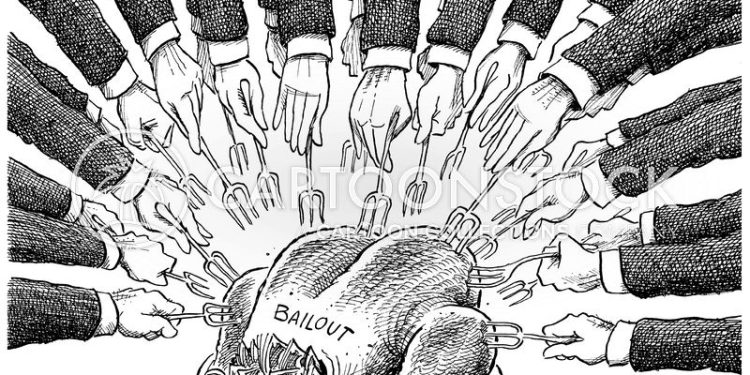By Moses Beamie Seiwoh & Sulaiman B. Sowa
A nation’s future must not rely on politics centered around handouts, as this strategy only sustains poverty and results in poor governance. Rather, the focus should be on implementing robust economic and social policies that create opportunities, promote self-sufficiency, and enable citizens to tackle poverty effectively. By prioritizing sustainable development, the nation can work towards becoming more equitable and resilient.
In Sierra Leone, the period leading up to national elections frequently highlights a recurring pattern: politicians unveil manifestos focused on results, pledging to address issues such as poverty reduction, improved educational access, better healthcare services, and economic growth, all contingent upon their election. However, historical evidence indicates that these political manifestos often fail to result in meaningful development, with many remaining as mere rhetoric.
To realize their aspirations of being elected, politicians typically resort to a strategy centered on handouts, which has become a prevalent method for garnering votes. They travel across the nation, reaching even the most remote villages, where they position themselves as advocates for the disadvantaged, providing temporary assistance through the distribution of cash, food, and other necessities to secure electoral support.
Shortcomings of Handout-Driven Politics
The truth is that while political strategies centered on handouts may provide short-term assistance to individuals with urgent needs, they fail to deliver lasting solutions or empower people to break free from poverty. In reality, these approaches can worsen the very problems they aim to address, creating dependency and diminishing self-sufficiency. Political leaders often utilize handout-based strategies as tools for control rather than as sincere efforts to elevate marginalized communities. Rather than prioritizing long-term economic initiatives such as job creation, education, and infrastructure enhancement, they concentrate on immediate giveaways to secure voter allegiance. This tactic distorts the democratic process and undermines effective governance, turning elections into competitions over who can offer the most instant rewards, rather than fostering substantial discussions on sustainable development policies.
Such an approach further undermines self-sufficiency among citizens, especially among the youth, who are often the most susceptible to the pitfalls of handout-oriented politics. In 2023, the youth unemployment rate in Sierra Leone was approximately 3.57 percent. However, this statistic conceals a considerable level of underemployment, particularly among individuals involved in low-yield subsistence farming and informal employment. The absence of sustainable job opportunities contributes to economic instability, leading many young individuals to resort to political handouts as a survival strategy.
Additionally, corruption flourishes in an environment characterized by handout-driven politics. Resources that should be allocated to healthcare, education, and economic growth are instead misappropriated for personal or political gain, a diversion that exacerbates inequality and results in critical sectors being underfunded, thereby perpetuating the very poverty that these handouts purport to alleviate.
In addition to economic stagnation, politics reliant on handouts weakens democratic institutions. When political allegiance is founded on material incentives instead of the effectiveness of governance, accountability suffers. Citizens who rely on handouts are less inclined to demand transparency, pursue policy reforms, or seek enhancements in public services, thereby enabling ineffective and corrupt leaders to remain in positions of authority.
Beyond Handout-Driven Politics
Escaping the cycle of handout-driven politics requires a significant transformation towards policies that empower underprivileged citizens instead of merely placating them. Political leaders in Sierra Leone should focus on creating jobs, enhancing education, and investing in public services to foster long-term economic stability. It is essential to strengthen institutions to prevent the misappropriation of public funds, ensuring that resources are directed towards national development rather than political favoritism.
Handout-driven politics is not a form of charity; rather, it is a calculated strategy to maintain power and control. Although it may provide short-term relief, it ultimately perpetuates poverty and undermines governance. For Sierra Leone to achieve meaningful progress there must be a unified rejection of handout-driven politics in favor of leadership that emphasizes economic empowerment, institutional reform, and sustainable development.
When citizens perceive handouts as a tactic designed to maintain their compliance and naivety, they become more equipped to make informed political decisions, pose relevant inquiries regarding governance, and insist on transparency and accountability from their leaders. This perspective encourages them to view politics as a means of service rather than merely a chance to accumulate excessive wealth that distances them from the struggles of the general populace. In a nation where politics significantly influences the lives of its citizens, it is essential for them to reject handouts in favor of collective progress.










